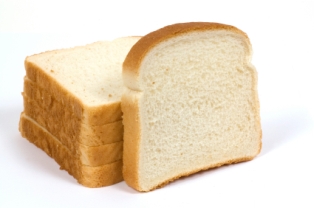Carbohydrate Conundrum
Study Shows Carbohydrates Contribute to Heart Disease. Are All Carbs Bad?
Anyone who knows me knows I’m not one who shuns carbohydrates. I enjoy my carbs, I’m just careful about what kinds of carbohydrates I consume.
Carbohydrates supply the body with the nutrients it needs to perform daily tasks that require effort (even the slightest effort). They replenish the body’s glycogen stores and keep the body energized.
Some people in the health profession, though, advise avoiding carbohydrates entirely. They say that all they do is add weight to the body, and that the easiest way to lose weight is to cut back on carbs.
There’s no question that cutting back on carbohydrates will help you lose weight. But cutting back entirely on carbohydrates is not the answer. In fact, I’ve found that it’s a recipe for gaining more weight down the road, as the body is starved of carbs for so long that it will eat them voraciously sooner or later.
The best way to lose weight – and keep it off – while remaining energized is to consume the right kinds of carbohydrates. By not consuming carbohydrates, you’re making other nutrients do carbohydrates job.
For instance, protein is supposed to replenish and repair muscles that get broken down, not serve as the body’s source for energy. But by not consuming carbs, you’re stretching the role of protein too thin, making it far less effective in replenishing broken down muscle.
At the same time, though, we shouldn’t be consuming carbohydrates that ramp up our blood sugar levels too quickly. Simple carbohydrates are an inefficient source of energy – where our energy levels peak, but go down quickly soon thereafter.
An overconsumption of simple carbohydrates also increase our risk for long term heart health problems, like heart disease, the leading cause of death in the country.
And we now know why simple carbohydrates tend to increase our risk for heart problems, as a recent study published in the Journal of American College of Cardiology explains.
The risk is not necessarily that carbohydrates make us fatter – though they can when eaten in exorbitant amounts – but rather in how they affect our arteries, making them far less elastic.
This is precisely what Dr. Michael Schecter from Tel Aviv University envisioned before conducting this study, and his envisions were realized when he observed the arterial function of 56 people after a high carb meal.
He had four groups of 14 people each consume high carbohydrate meals. One ate pure sugar, another ate corn flakes with milk (one of the higher foods on the glycemic index) and another ate bran flakes (not as high on the glycemic index, but still high). The last group was the placebo group, so they abstained from a meal.
Dr. Schecter and his colleagues found that each member of each group had endothelial function that diminished after their meal compared to prior to their sugary cereal servings – even those that ate bran flakes. The one group whose endothelial function remained healthy? You guessed it, the placebo group.
Endothelial function is just a fancy word for describing the lining of the arteries. When foods high in sugar and high on the glycemic index are consumed, there’s undue stress put on those arteries, so much so that the arteries become dysfunctional for a short period of time, according to Dr. Schecter.
While Schecter is quick to point out that this dysfunction is sudden and only temporary, it doesn’t take a study of his to know that that endothelial dysfunction will become permanent the more often a person eats foods high on the glycemic index.
Maintaining a healthy heart is not accomplished by cutting out carbohydrates from your diet but rather to eat carbohydrates low on the glycemic index. These should be complex carbohydrates, like oatmeal, 100 percent whole wheat bread (make sure it says “100 percent,” as many breads that claim to be “wheat” are made with refined flour), beans, nuts, and seeds.
You can’t go wrong with fruits and vegetables either, but just be aware that they tend to vary on the glycemic index considerably (e.g. cherries have a low GI of 22, while watermelon has a high GI 72; potatoes have a high GI of 82, while broccoli has a low GI of 15).
Sources:
sciencedaily.com
southbeach-diet-plan.com
Related Posts
- Lose Weight by Eating More?
- More to Gain from Whole Grain…
- Throat Cancer and its Link to Refined Carbohydrates
- “Finish those vegetables before you have your dessert!”: The Importance of Broccoli Concerning Diabetes
 
|
Enjoy this article? We guarantee your privacy. Your email address will NEVER be rented, traded or sold. |
Visit my new site: Self Help On The Web
 |
 |
Posted: July 13th, 2009 under Carbohydrates, Heart Disease, Weight Loss.
Tags: carbs and heart disease, carbs and weight loss







